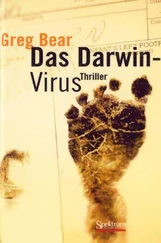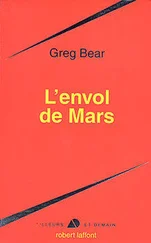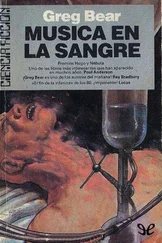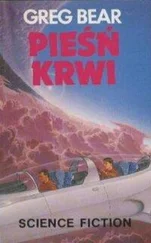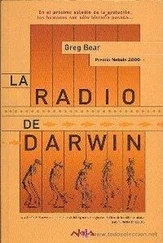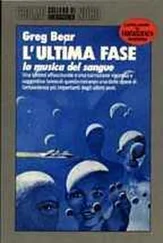“Could you do it?”
The colonel’s face was a battleground of conflicting emotions. “My team can do damn near anything, sir, but it would take specific orders to even discuss such an option.”
“This is off the record,” Arthur said.
“Even off the record, sir.”
Arthur nodded and looked away. “I’m only going to be here for a few hours,” he said. “You have your orders — but frankly, I don’t have any specific orders. And I believe my authority supersedes yours here, am I correct?”
“Yes, sir, except where you might contradict direct orders from the President.”
“You have no orders to prevent me from entering the bogey, do you?”
Rogers thought that over. “No, sir.”
“I’d like to do that.”
“It’s not difficult, sir,” Rogers said.
“Only difficult if you’re the first one in, right?”
Rogers smiled faintly.
“I’ll have your lead to follow. Tell me what I need to know, and what sort of equipment will be necessary.”
PERSPECTIVE
AP News Network in Brief, November 17, 1996, Washington, D. C.:
Representative Dale Berkshire, R-V., recommended before the full Congress today that the House Judiciary Committee begin hearings on President-elect Crockerman’s actions with regard to the Death Valley spacecraft. “There is strong sentiment among my people for impeachment,” Berkshire said. “Let the process begin here and now.” Berkshire and numerous other congressmen have reportedly asked the House and Senate to delay the President-elect’s inauguration ceremonies. No action on a delay has been taken at present.
November 17
Mary, the duty officer, greeted them over the intercom with a smile in her voice. “Rise and shine,” she said. “You’re getting out today. I just heard it from Colonel Phan.”
Edward had been awake for hours. He had not been able to sleep much the last couple of days. The cool clean plastic smell of cubicle air filled his entire body; he could not remember what real air tasted like. Minelli had been worse than usual, babbling sometimes, weeping, and Edward’s anger had curled up inside him, helpless, hot, yet anesthetic, slowing him down rather than pushing him to action. Action resulted in nothing.
“You’re a liar, Mary, Mary,” Minelli said. “We’re prisoners for life.” An Air Force psychologist had spoken with Minelli and concluded the man was suffering from “extreme cabin fever.” So were they all.
“We’re not security risks anymore?” Reslaw asked.
“I guess not. You’re healthy and the President’s announcement makes the rest pretty unnecessary, don’t you think?”
“I’ve been thinking that for days,” Reslaw said.
At ten a.m. Colonel Phan appeared with General Fulton. The isolation chamber window covers were withdrawn and Fulton greeted them all solemnly, apologizing for the inconvenience. Minelli said nothing.
“We’ve announced your release,” Fulton said, “and made arrangements for a press conference at two this afternoon. We have new clothes for you and all your confiscated personal effects.”
“A cheap suit and ten bucks in pocket,” Minelli said.
Fulton smiled grimly. “You’re free to say whatever you want. There’s no sense our stonewalling; we’ve had perfectly good reasons for everything we did. I hope, even now, that you can see those reasons. I don’t expect sympathy.”
Edward bit his lip gently, eyes focused on Fulton’s cap. Then he looked in the direction of Stella’s window and saw her standing in the white fluorescent light, gaunt, almost ghostly. She had lost a lot of weight. So had Reslaw. Minelli, strangely, had become almost plump.
“I’ve taken the liberty of having Mr. Shaw’s Land Cruiser given a thorough check-over at our motor pool garage. The oil’s been changed, engine tuned, and a new set of tires put on. Think of it as the least we can do. We’ve also arranged for monetary compensation for your time here. Should you need any medical attention in the next few years, that’s on us, too. I assume one or more of you will sue us.” Fulton shrugged. “All right. Your hall doors will be opened in five minutes. If you’re up to it, I’d like to thank each of you personally and shake your hand. My gratitude is sincere, but I won’t require you to acknowledge.”
“Shake the fucking President’s hand,” Minelli roared. “Ah, Christ, let me out.”
Fulton walked with the watch supervisor down the connecting corridor between the cells, his face ashen. “This whole thing…has become the worst screwup…of my entire career,” he said, eyes half closed.
Within half an hour, the four stood in sunshine outside the smooth concrete walls of the Experimental Receiving Laboratory, blinking. Edward made a point of keeping close to Stella. She seemed frail, excessively quiet, her face drawn and haunted like that of a starved child.
“You going to make it?” Edward asked.
“I want to go home. I’m clean, but I want to take a shower at home. Does that make sense?”
“Perfect sense,” Edward said. “Wash off all the prison cooties.”
She smiled broadly, then opened her arms wide and held them out to the sky, making an ecstatic feline wriggle. “God. The sun.”
Minelli covered his eyes with one hand against the sun, stretching the other hand out palm-up to catch the rays. “Beautiful,” he said.
“What do you want to do, Edward?” Stella asked.
“Take a hike,” Edward said without hesitating. “Get back out to the desert.”
“If any of you wants to spend some time in Shoshone…” Stella paused. “It might be silly, you probably want to get as far away from here as possible, but you can stay at our house. I realize you must have other things to do.”
“We’re at loose ends,” Reslaw said. “I am, anyway.”
They passed General Fulton and Colonel Phan as the watch supervisor escorted them into a small auditorium near the base public information office. An Air Force lawyer talked to them about their immediate future and offered legal assistance, including the agenting of book and movie offers, without fee. “I think I’m pretty good, and so does the Air Force,” he said. “Nothing mandatory, of course. If you don’t like me, the service will pay for any lawyer you choose, within reason.”
The press conference, though an ordeal, was mercifully brief — only half an hour. They sat alone at a long table while approximately three hundred reporters competed to ask questions, one at a time, through remote microphones. For Edward, the questions blurred into one another: How did you find the alien? Were you actually looking for spaceships and aliens? Are you going to sue the Air Force or the United States government? (“I don’t know,” Edward replied.) What do you think of the Australian spaceship? Of the President’s address to the nation? (“If we are being invaded,” Minelli said, “I think his message sucks.”) Bernice Morgan, Stella’s mother, sat in a roped-off section. She wore a belted print dress and carried a broad white sun hat. Her face was calm. Beside her sat the Morgan family lawyer, older and much more grizzled than the military counsel, in a dark blue suit, clutching a briefcase.
By three, they were back hi the auditorium. Stella stood beside her mother while their lawyer discussed the circumstances of their release. He then offered to represent all four of the detainees, as he referred to them.
A staff sergeant handed Edward a bag containing the keys to his Jeep, and they were all given their packets of personal effects. “I can drive you all right out of here,” Edward said. “If we can avoid the reporters…”
Читать дальше

